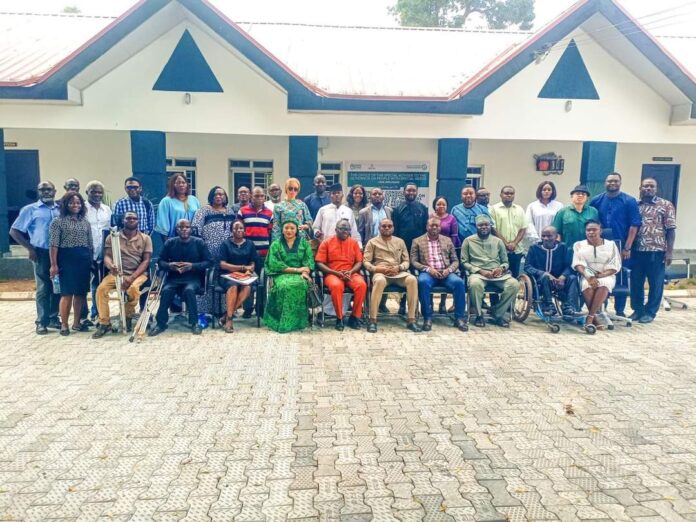Makurdi, Benue State — In a significant gathering of advocates, stakeholders, and persons with disabilities, the call for the immediate passage of the anti-discrimination law in Benue State resonated strongly. This meeting, driven by the growing need for equitable treatment and access to basic public services, shed light on the persistent challenges faced by the disability community in the state.
The recent assembly highlighted a critical need for legislative action that would address the systemic discrimination faced by persons with disabilities. The conversation centered on the long-overdue domestication of the national disability law, with participants emphasizing the necessity of passing a state-specific bill that would protect the rights of these vulnerable populations.
Voices of Advocacy and Inclusion
Stephen Idoko, representing the Inclusive Friends Association (IFA), delivered a compelling call to action. He underscored the urgency of moving beyond rhetoric to practical solutions, stating that the passage of the disability bill in Benue State is not just a legal formality but a moral imperative. “The law on people with disabilities must be domesticated in Benue State. We need this law to ensure that our rights are protected and that we are not left behind,” Idoko said.
He emphasized that his organization has already developed a comprehensive roadmap to strengthen engagement between the government and disability groups. Idoko urged the media to amplify the voices of persons with disabilities, focusing on their challenges and the role of the government in addressing these issues. “The media plays a crucial role in our advocacy efforts. By bringing these issues to the forefront, we can push for the necessary legislative changes,” he added.
Governor Hyacinth Alia’s administration was highlighted as a potential ally in this cause. His previous statements on inclusion were noted, and the gathering expressed hope that his commitment would translate into tangible action. “Governor Alia’s commitment extends to these vulnerable populations, ensuring that their voices are heard,” said one of the attendees, reflecting the cautious optimism of the group.
The Struggles of Access and Discrimination
Various individuals with disabilities shared their personal experiences, painting a vivid picture of the day-to-day struggles they face due to the lack of accessible infrastructure and services. Collins Werkaa, a wheelchair user, recounted his difficulties in accessing government offices and hospitals. “Every time I need to visit a public office, it feels like an uphill battle. The buildings are not accessible, and I am often left waiting outside because there is no way for me to get in,” he lamented.
Jacinta Igwilo, another participant, echoed these sentiments, focusing on the challenges within the educational system. “Schools are supposed to be places of learning for everyone, but for us, it’s different. The lack of accessible classrooms and materials means that many children with disabilities are left out of the education system entirely,” she said.
These personal accounts highlighted the urgent need for the state government to prioritize the construction of accessible public facilities and to enforce standards that ensure inclusivity. The lack of such infrastructure not only perpetuates discrimination but also limits the ability of persons with disabilities to participate fully in society.
A United Call for Legislative Action
The consensus among attendees was clear: the passage of an anti-discrimination law in Benue State would be a significant step toward addressing the systemic challenges faced by persons with disabilities. This law, they argued, would provide a legal framework to combat discrimination, ensure accessibility in public spaces, and guarantee equal opportunities in employment, education, and healthcare.
Idoko’s roadmap for engagement was seen as a strategic plan that could guide the state government in implementing these changes. He called on the government to collaborate with disability organizations and other stakeholders to ensure that the law, once passed, is effectively enforced.
The meeting concluded with a unified demand for immediate legislative action. The attendees expressed their hope that the state government would recognize the urgency of their situation and act swiftly to pass the anti-discrimination bill. “We are not asking for special treatment; we are asking for equal treatment,” said Werkaa. “This law will help us live our lives with dignity and participate fully in our society.”
Looking Ahead: Hope for Change
As the push for the anti-discrimination law gains momentum, there is a palpable sense of anticipation within the disability community in Benue State. The hope is that the government will heed their call and take decisive action to address the long-standing issues of discrimination and exclusion.
The coming months will be crucial in determining whether this advocacy will result in meaningful change. For now, the voices of persons with disabilities in Benue State are louder than ever, and their message is clear: inclusion, accessibility, and equality are not just aspirations—they are rights that must be recognized and protected by law.


